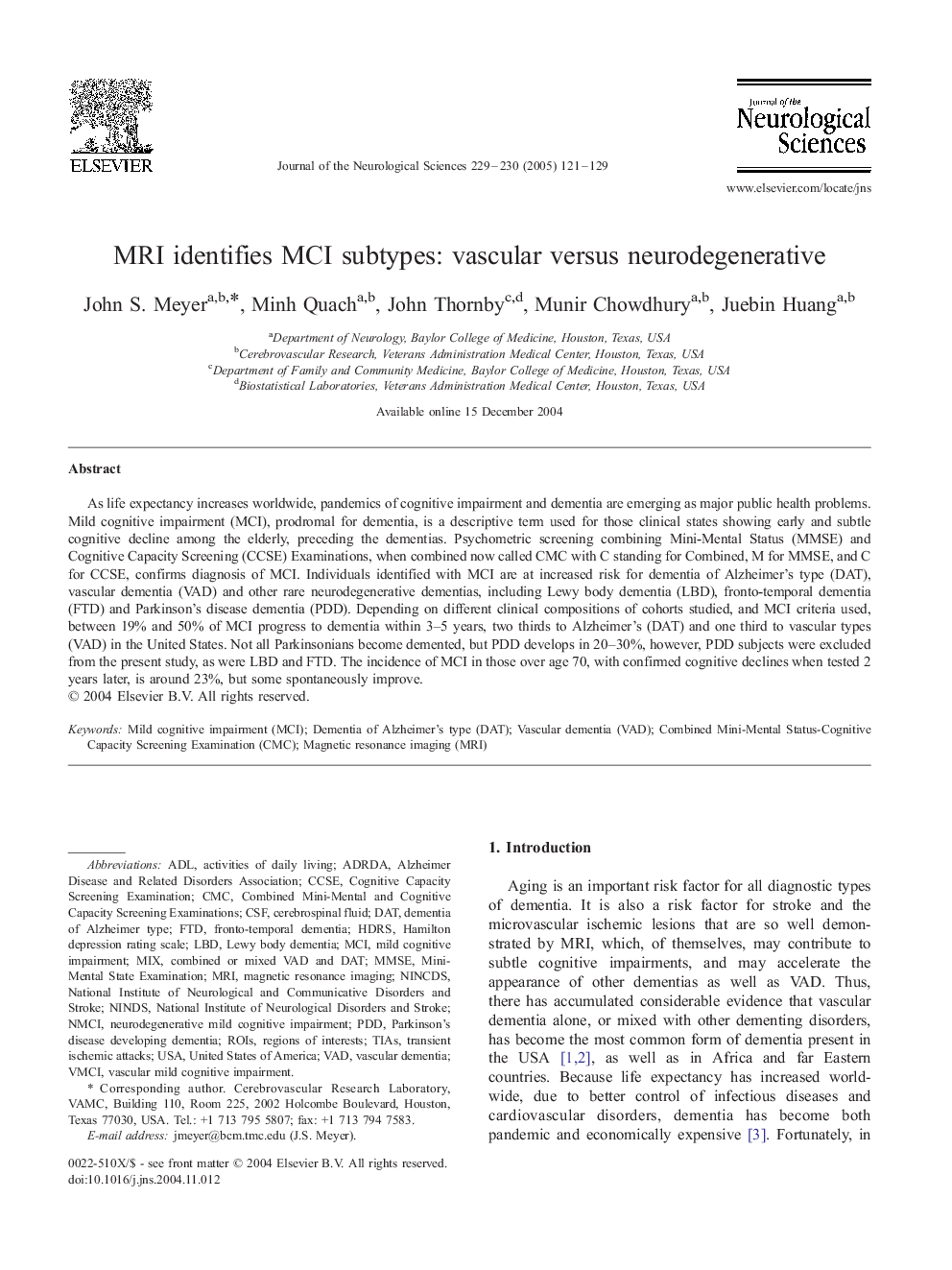| Article ID | Journal | Published Year | Pages | File Type |
|---|---|---|---|---|
| 9880404 | Journal of the Neurological Sciences | 2005 | 9 Pages |
Abstract
As life expectancy increases worldwide, pandemics of cognitive impairment and dementia are emerging as major public health problems. Mild cognitive impairment (MCI), prodromal for dementia, is a descriptive term used for those clinical states showing early and subtle cognitive decline among the elderly, preceding the dementias. Psychometric screening combining Mini-Mental Status (MMSE) and Cognitive Capacity Screening (CCSE) Examinations, when combined now called CMC with C standing for Combined, M for MMSE, and C for CCSE, confirms diagnosis of MCI. Individuals identified with MCI are at increased risk for dementia of Alzheimer's type (DAT), vascular dementia (VAD) and other rare neurodegenerative dementias, including Lewy body dementia (LBD), fronto-temporal dementia (FTD) and Parkinson's disease dementia (PDD). Depending on different clinical compositions of cohorts studied, and MCI criteria used, between 19% and 50% of MCI progress to dementia within 3-5 years, two thirds to Alzheimer's (DAT) and one third to vascular types (VAD) in the United States. Not all Parkinsonians become demented, but PDD develops in 20-30%, however, PDD subjects were excluded from the present study, as were LBD and FTD. The incidence of MCI in those over age 70, with confirmed cognitive declines when tested 2 years later, is around 23%, but some spontaneously improve.
Keywords
ADLHDRSMMSEPDDFTDDATVascular dementia (VaD)TIAsLBDCMCROIsmild cognitive impairmentMild cognitive impairment (MCI)Magnetic Resonance Imaging (MRI)MRIUnited States of AmericaUSAMagnetic resonance imagingTransient ischemic attacksLewy body dementiaVascular dementiadementia of Alzheimer typeNINDSFronto-temporal dementiaActivities of daily livingCSFCerebrospinal fluidMIxMini-Mental State ExaminationHamilton Depression Rating Scaleregions of interestsNational Institute of Neurological Disorders and StrokeMCIVAD
Related Topics
Life Sciences
Biochemistry, Genetics and Molecular Biology
Ageing
Authors
John S. Meyer, Minh Quach, John Thornby, Munir Chowdhury, Juebin Huang,
